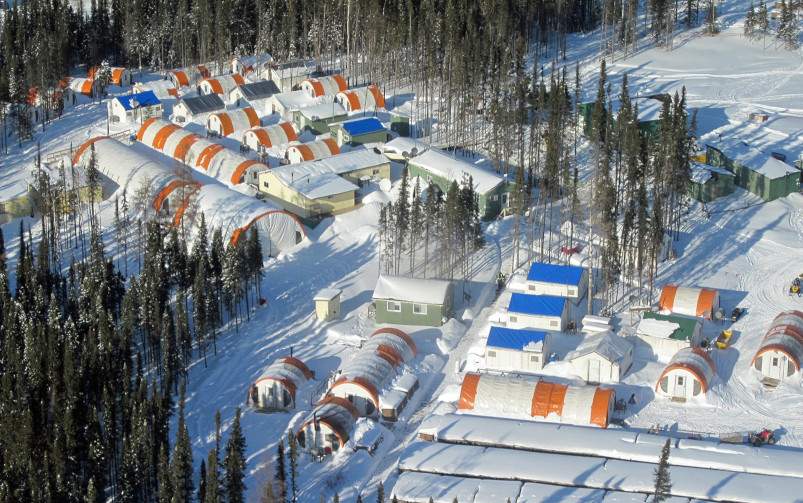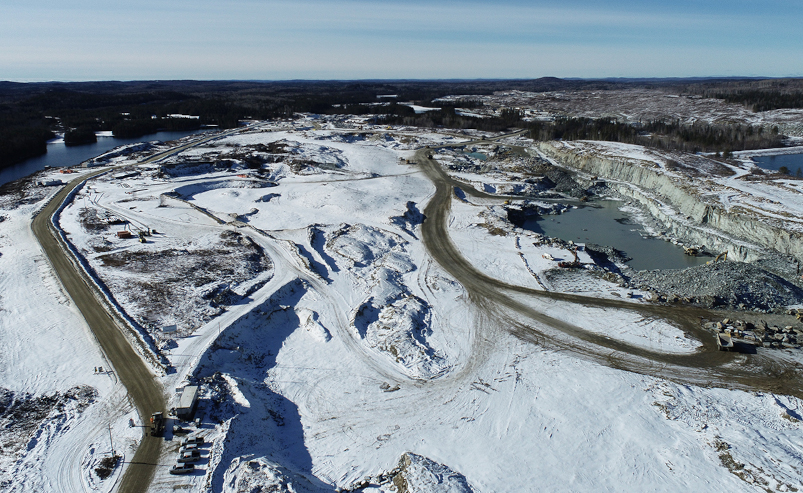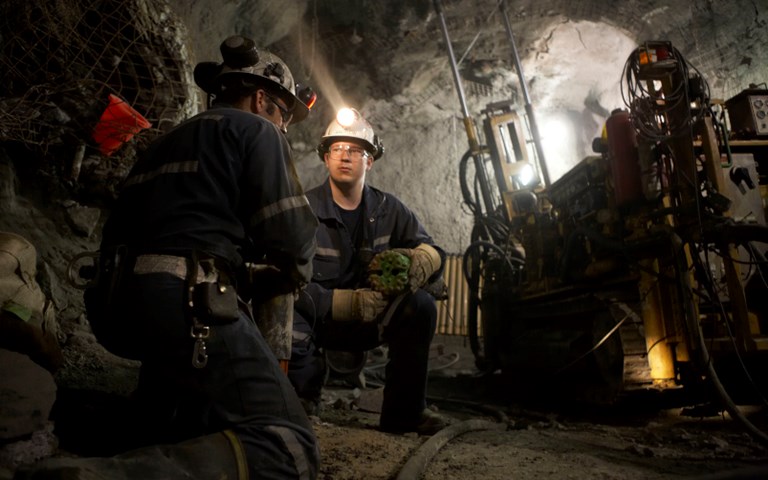After two months of striking, the United Steelworkers 6500 have approved a new five-year collective agreement. Courtesy of Vale.
A two-month strike at Vale’s Sudbury nickel and copper operations has finally come to an end, with a new deal inked between the mining company and the members of the United Steelworkers (USW) Local 6500.
Eighty-five per cent of the over 2,500 unionized steelworkers voted on Aug. 3 in favour of a new five-year collective agreement, which, effective immediately, will improve employee wages, benefits and health coverage.
"The past two months have been challenging for everyone," Dino Otranto, Vale’s chief operating officer of North Atlantic Operations said. "We are pleased that the company and the union were able to find common ground and a path forward. We look forward to welcoming everyone back.”
Vale had previously presented two other wage deals to the members of the USW 6500, but both were swiftly rejected and prompted the picket lines to go up on June 1.
“To be honest, the workers were actually quite insulted by the original offer the company had put on the table," Kevin Boyd, USW Local 6500 vice-president, said in an interview with CIM Magazine.
The largest point of contention, according to Boyd, was that Vale was trying to eliminate the existing post-retirement health benefits for all new hires. Instead, the mining giant was offering all future hires a $1,000 post-retirement “health-care savings account,” which would see new workers lose almost 80 per cent of the coverage that was being provided under the current plan. The proposal would have also removed coverage on certain medications and medical supplies.
“The work that we do, as much as we try to make it as safe as possible for our [members] in those plants, mines and service plants, there are dangers. There are chemicals, there are repetitive strain injuries and all sorts of hazards that can have long-term effects,” explained Boyd. “We need something to help take care of our bodies after we retire to have any type of quality of life.”
The new five-year agreement was eventually settled with the aid of a third-party facilitator that was brought in to help foster negotiations on July 19. The deal now comes with a six per cent wage increase over five years, with additional cost-of-living adjustments; a $2,500 recognition payment to be made in August, acknowledging the work done throughout the COVID-19 pandemic; a $3,500 signing bonus to be paid in September; the continuation of over-the-counter drug coverage; and notably, the preservation of the retiree health benefits for all future hires.
Related: Canada is making changes to curb the practice of predatory short selling, a thorn in the side of junior mining companies
"When we looked at this offer that was ratified, it actually checked off all the boxes...[for] our membership [to] move forward. So, it satisfied what we were looking for,” said Boyd.
If it hadn’t, he added that the workers were prepared to continue picketing. “By no means did the membership get tired of being on strike. There was a lot of support to say ‘Hey, I'm ready to stay out another year if I have to, to make sure we take care of the future generations because that is what those benefits are about.’”
Vale’s operations in Sudbury include five mines, a mill, a smelter, a refinery and almost 4,000 employees, making it one of the world’s largest integrated mining complexes. Moving forward, Otranto said the company will be focusing on positioning itself to “thrive today and for generations to come.”
“We have many opportunities ahead of us, with the growing electric vehicle market,” he said. “The nickel, copper and cobalt we produce are critical metals to achieving a low-carbon future. What we produce, and how we produce it, matters and our collective success going forward will require collaboration to make this business successful for us all.”
In the meantime, the USW Local 6500 workers will be returning to work on Aug. 9, with operations expected to start ramping up in the next three weeks.




